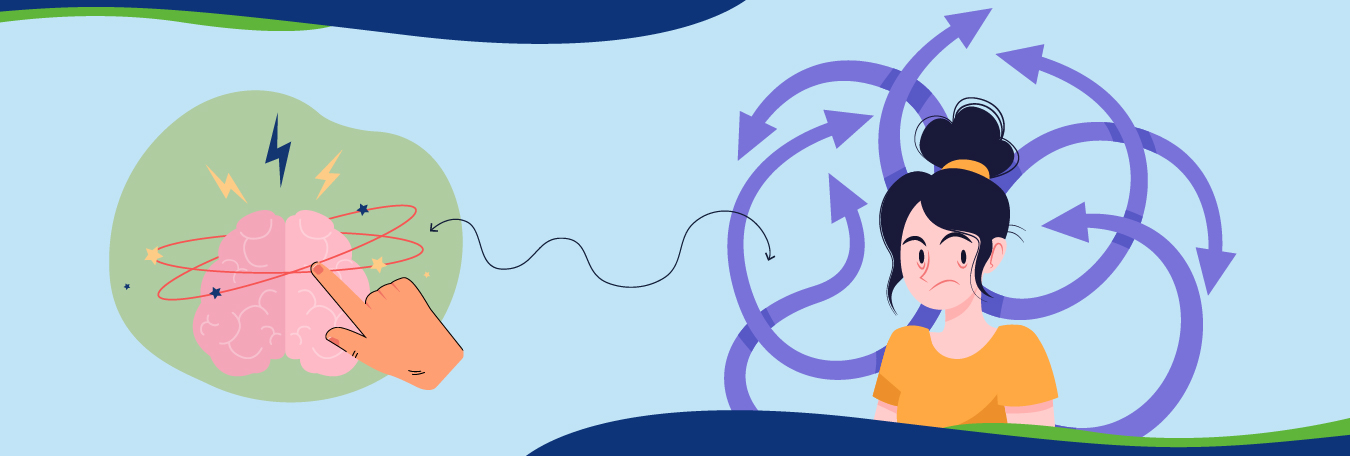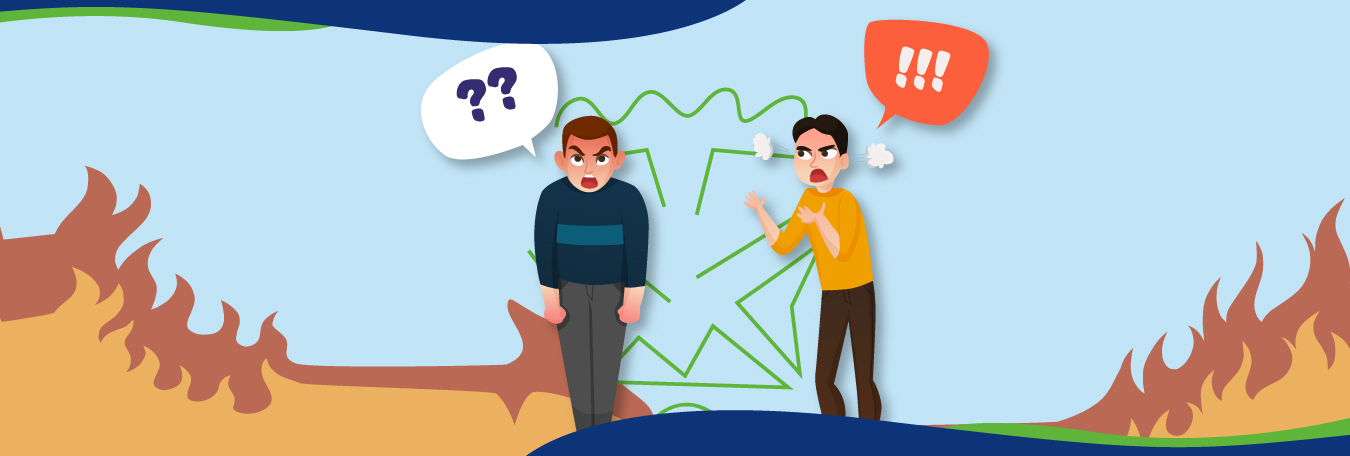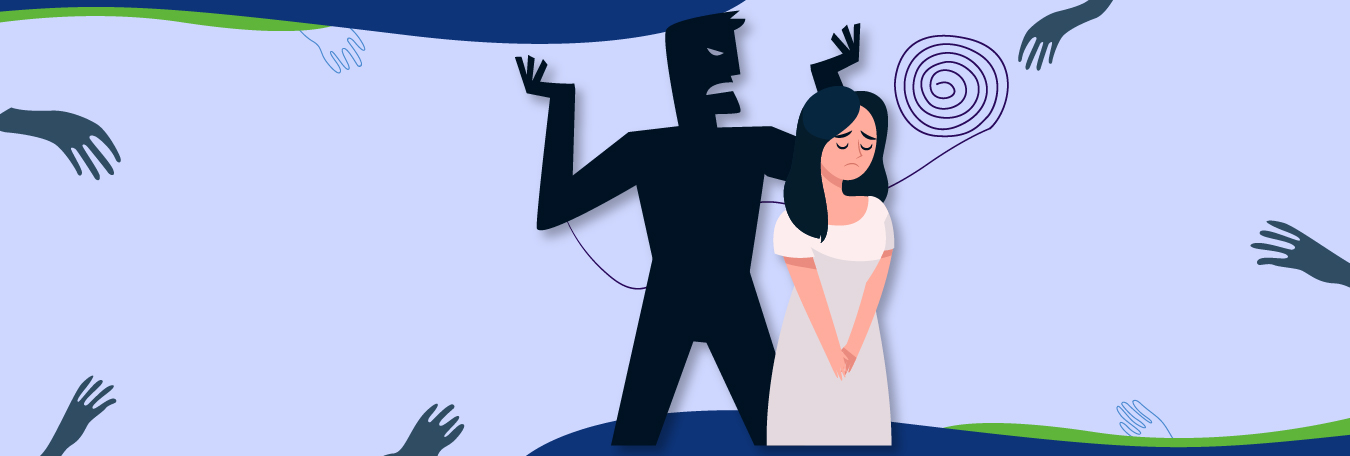Dyslexia and Obsessive-Compulsive Disorder (OCD) are two completely different disorders that affect millions of people around the globe. Dyslexia is considered a mild learning disorder that affects the understanding of symbols and words in a text, and OCD is an anxiety disorder where intrusive thoughts and physical obsessions manifest in the patient’s thoughts. Importantly, although dyslexia and obsessive-compulsive disorder seem to have no connection in some ways, current studies have investigated whether these two conditions are connected or not. Is there any relationship between these two? Could it be neurological, or is one just a result of the other or a combination?
This article will review the main concern related to these mental health conditions “is ocd and dyslexia connected or not?”
Understanding Dyslexia
Dyslexia, therefore, refers to a special learning difficulty that affects the ability of individuals to process language. Dyslexia is an educational learning disorder that affects a person’s ability to read, write, spell, or process words or phonological sound patterns. Dyslexia is not a disease that influences intelligence. Individuals with dyslexia often have normal and even superior intelligence, but they have problems in reading and writing.
Read More: A Brief Guide to different types of OCD
Key Symptoms of Dyslexia:
- Difficulty with Reading: Persons with dyslexia might read and write slowly, or put it another way, they can mispronounce words, or they may not be able to blend words properly.
- Spelling Challenges: It is associated with spelling difficulties as the dyslexic person may not distinguish familiar letter patterns.
- Phonological Processing Issues: Children with dyslexia have problems with phonological processing, or how they separate a word into its separate sounds.
- Writing Difficulties: Possible effects of dyslexia include poor grammar, organization, and writing.
Dyslexia is believed to have some connection with the parts of the brain that are responsible for language processing. A literature review established that brain imaging data demonstrated that people with dyslexia abnormally use their brains when reading or processing language.
Understanding OCD
Obsessive-Compulsive Disorder or OCD is a type of anxiety disorder and includes things or ideas known as obsession and behaviors or actions referred to as compulsions.
Key Symptoms of OCD:
- Obsessions: These are characterized by elevated and persistent thinking and the appearance of unwanted images or urges. The most frequently reported obsessions are related to germs, danger, or losing control.
- Compulsions are obsessive thoughts that the person tries to neutralize by performing compulsions such as washing, checking, or counting.
- Anxiety: Sufferers of OCD have persistent anxiety about the objective of their obsessions, which leads them to compulsions.
This condition is often lifelong but can vary in severity. It is defined by the brain’s serotonin neurotransmitter system dysfunction and by impaired activity of specific regions, including the orbitofrontal cortex, the ACC, and the basal ganglia.
OCD comorbidity with Dyslexia
Dyslexia and OCD are not the same type of disorders, and yet studies have pointed out that there may be a connection between these. People affected with dyslexia and OCD at the same time are not an exception as this phenomenon is called comorbidity. Some of the surveys have suggested that more people with OCD tend to be suffering from learning disabilities such as dyslexia and vice versa.

People with both these disorders often find that symptoms of one disorder makes managing the other condition even more difficult. For example, a child with dyslexia might have increased worry of not doing well in school, which can cause intrusive negative thoughts about failure, and may, therefore, engage in compulsions to do school work. On the other hand, a person with OCD might develop an obsession with reading or writing and, therefore, make the dyslexia-related issues even worse.
Cognitive Similarities
Another relationship between dyslexia and OCD could be related to the actual neurocognitive deficits present in both conditions. Dyslexia is connected with executive tasks, and so is OCD, mainly in working memory, attention, and organization. Learners with dyslexia display language and writing disorganization, while learners with OCD face problems with flexible thinking, getting stuck too much in certain tasks and thoughts.
- Working Memory: Working memory is used to read and attempt repetitive jobs. Students who have dyslexia may experience difficulty with this capacity when reading or writing information. Likewise, patients diagnosed with OCD can struggle with working memory during their attempts to suppress compulsions or memorize whether the specific tasks have already been done.
- Attention: In dyslexia and Obsessive Compulsive Disorder, attention deficiency could contribute to the development of symptoms. Concentration problems during reading in the case of dyslexia might have difficulty getting preoccupied with a thought or task in the case of OCD, which disables them from focusing and paying attention in other areas.
Neurological Connections
Some research on the brain revealed that the areas associated with dyslexia and OCD sometimes overlap. Both disorders involve changes in the regions of the brain involved in processing, regulation, and coordination. Specifically, both disorders involve the prefrontal cortex, which organizes executive control, decision-making processes, and working memory. It is also involved in the attention deficit and organizational impairment features of both disorders.
The basal ganglia, a subcortical structure part of the motor system relevant to decision-making and involved in habit formation, is also implicated in both conditions. It has been hypothesized that the dysfunction of some basal ganglia structures might be responsible for the repetitive component of OCD and the obsession symptoms. However, in dyslexia, the disorder in this area might also be postulated as resulting in impaired automaticity in reading and writing.
Psychological and Emotional Effects
It is not easy to live with either dyslexia or OCD; these conditions bring about a real psychological and emotional toll, and this is even worse when a patient struggles with both disorders. Children who have dyslexia may have anxiety or low self-esteem problems more often because of their difficulty in learning at school. Similarly, people with OCD usually have substantial experience anxiety and depression and distress regarding their obsession and compulsion. When both conditions surface, it is often emotionally overwhelming.
Learning problems accompany dyslexia as well as obsessive-compulsive disorder, which in turn causes frustration and inadequate feelings in children. It may also lead to social anxiety about being unable to compete for resources with other children or embarrassing compulsions or learning disabilities.
Read More: OCD in children: Signs, Causes and Treatment
Therapies Used in Dyslexia and OCD Patients
Working with dyslexia and OCD entails a holistic perspective whereby the learning disorder and the anxiety disorder are treatable. The treatment may include individual therapy, group therapy, educational support, counseling, and sometimes medication.
- Cognitive Behavioral Therapy (CBT): CBT is recognized as a very useful treatment for OCD thinking, especially in replacing negative thoughts and behaviors. Learning difficulties, together with anxiety and compulsions, can be managed by CBT for mentally ill patients with co-occurring dyslexia. One form of CBT especially designed for the treatment of OCD is exposure and response prevention (ERP). ERP involves making clients face their thoughts without performing the compulsions.
- Educational Interventions: Teaching support should be communicated early to foster awareness of learning disorders such as dyslexia. Cued instruction involving more than one teaching modality affects dyslexic learners, and one of the most effective techniques used here is the Orton-Gillingham approach. Things like extra time when doing tests or the use of audiobooks to ease anxiety can also help reduce academic anxiety, which may trigger OCD.
- Medication: Sometimes, the physician may recommend using drugs to alleviate the symptoms that are a part of OCD. The most popular drug used to lessen the severity of obsession and compulsions is called Selective serotonin reuptake inhibitors (SSRIs). Though dyslexia cannot be healed through drugs, drugs that control OCD could assist learners in applying their brains well to the tasks in class.
Concluding Remarks!
Though dyslexia and OCD are separate conditions, recent studies imply existing relations using core cognitive and neurological connections. Dyslexia and the existence of OCD make certain learning tasks even more of a struggle for the child, particularly where attention, working memory, and feelings of well-being are concerned. However, if appropriate therapy, education therapy, and, if necessary, medication, people with both conditions can lead a normal life and perform well academically and psychologically. More studies should determine whether this correlation is causal or temporal and is there any connection of ADHD as well. If your child is exhibiting signs of Dyslexia or OCD, then do not hesitate to get in touch with the Inland Empire Behavioral Group today!




